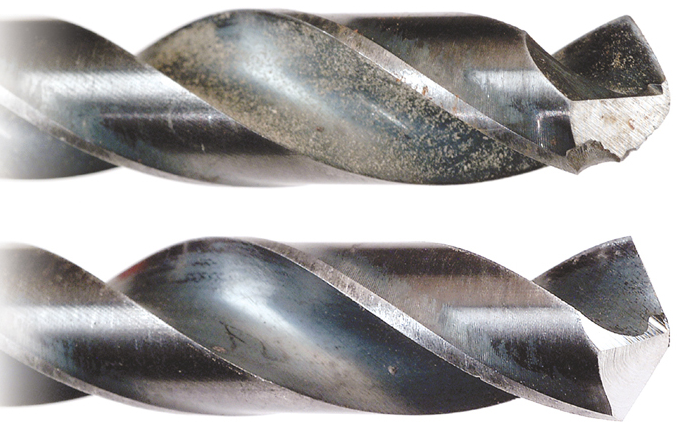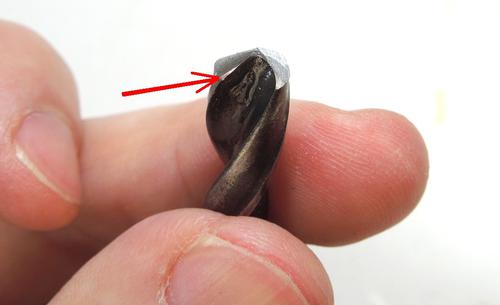Do drill bits get dull? Well, let’s get straight to the point. If you’ve ever used a drill, you may have noticed that over time, it doesn’t quite cut through materials like it used to. That’s because drill bits can indeed get dull. But why does this happen? And what can you do about it? Keep reading to find out!
Now, you might be wondering, “Why should I care if drill bits get dull?” Good question! Dull drill bits not only make your drilling tasks slower and more difficult, but they can also damage the material you’re working on. Nobody wants that, right? So, it’s important to know how to spot a dull drill bit and what steps you can take to keep your bits in tip-top shape.
But don’t worry, my young friend! I’m here to guide you through it all. In this article, we’ll explore the reasons why drill bits get dull, the signs of a dull bit, and some easy maintenance tips to ensure your bits stay sharp and ready for action. So, let’s dive in and discover the fascinating world of drill bits together! Are you ready? Let’s go!

Do Drill Bits Get Dull? Exploring the Lifespan of Drill Bits
Drill bits are indispensable tools in any handyman’s arsenal. Whether you’re a DIY enthusiast or a professional contractor, drill bits are vital for various drilling applications. However, like any other tool, drill bits are subject to wear and tear. One common concern among users is whether drill bits get dull over time. In this article, we will delve into the factors that contribute to the dulled performance of drill bits and explore ways to extend their lifespan.
Why Do Drill Bits Get Dull? Understanding the Culprits
Drill bits are designed to cut through various materials, such as wood, metal, and concrete. Over time, repeated use and exposure to different surfaces can cause the cutting edges of drill bits to deteriorate. Here are some common reasons why drill bits can get dull:
Poor Quality Materials
Inferior drill bits made from low-quality materials are more prone to dulling. These bits may not have the necessary hardness or durability to withstand rigorous drilling tasks. Choosing high-quality drill bits made from cobalt, titanium, or carbide can significantly prolong their lifespan.
Friction and Heat
Drilling creates friction and generates heat, which can take a toll on the cutting edges of drill bits. The excessive heat can cause the metal to soften, leading to accelerated wear. Using lubricants or coolants during drilling can help reduce friction and dissipate heat, thereby minimizing the risk of dulling.
Misalignment and Misuse
Using a drill bit improperly or subjecting it to misalignment while drilling can cause uneven wear and dullness. Applying excessive force, using the wrong speed settings, or failing to maintain a steady hand can all contribute to premature dulling. Proper drilling techniques and regular maintenance can help mitigate these issues.
Extending the Lifespan of Drill Bits: Tips and Techniques
While drill bits inevitably wear down over time, certain measures can help extend their lifespan and maintain their effectiveness. Here are some tips and techniques to consider:
Choose the Right Drill Bit for the Task
Selecting the appropriate drill bit for the material you’re working with is crucial. Different materials require different types of drill bits. For instance, wood and metal bits have distinct cutting edges and angles specifically designed for their respective applications. Using the correct drill bit can minimize unnecessary strain and potential dulling.
Use Lubrication and Cooling Agents
To reduce friction and heat generation during drilling, it’s essential to use lubrication or cooling agents. Cutting oils, drilling pastes, or even simple water can act as effective lubricants, enhancing the performance and durability of drill bits. Apply them to the cutting edges before drilling, particularly when working with tougher materials.
Monitor Speed and Pressure
Applying excessive speed or pressure while drilling can accelerate dulling. It’s crucial to maintain an optimal drilling speed that matches the material and bit being used. Likewise, applying gradual and consistent pressure instead of forcing the drill bit can help prevent unnecessary wear and extend its lifespan.
Invest in High-Quality Drill Bits
Opting for high-quality drill bits is an investment that pays dividends in the long run. Quality bits are often made from durable materials that can withstand rigorous drilling tasks without prematurely dulling. While they may come at a higher price, their longer lifespan and superior performance make them a worthwhile investment.
Sharpen or Replace Dull Drill Bits
Even with proper care and maintenance, drill bits will eventually become dull. Instead of persisting with a dull bit, it’s essential to either sharpen or replace it. Sharpening can help revive the cutting edges and restore its effectiveness. However, if the drill bit is excessively dull or damaged, it’s advisable to replace it to ensure optimal performance.
Key Maintenance Practices for Long-lasting Drill Bits
To keep your drill bits in top condition and extend their lifespan, follow these maintenance practices:
Regular Cleaning
After each drilling session, clean the drill bits thoroughly to remove any debris or residue. This will prevent buildup and potential damage to the cutting edges.
Proper Storage
Store your drill bits in a dedicated case or organizer to protect them from physical damage and moisture. This will help maintain their sharpness and prevent unnecessary wear.
Inspect for Wear
Regularly inspect your drill bits for signs of wear, such as dull or chipped edges. Promptly address any issues to prevent further damage and ensure optimal performance.
Sharpening as Needed
Learn how to properly sharpen your drill bits using a sharpening tool or seek professional assistance when necessary. Sharpening will restore the cutting edges and extend the life of your bits.
In conclusion, drill bits do get dull over time due to various factors such as poor quality materials, friction, heat, and misuse. However, by adopting the right techniques and investing in high-quality drill bits, you can significantly extend their lifespan and maintain their effectiveness. Regular maintenance practices, such as cleaning, proper storage, and sharpening, are crucial for keeping your drill bits in optimal condition. By following these guidelines, you can ensure that your drill bits are always ready to tackle any drilling task with precision and efficiency.
Key Takeaways: Do Drill Bits Get Dull?
- Drill bits do get dull over time due to wear and tear.
- Using a dull drill bit can cause slower drilling and increased strain on the drill motor.
- Dull drill bits can also cause rough and inaccurate holes in materials.
- Regular sharpening or replacement of drill bits is necessary for optimal performance.
- Proper maintenance and storage can help prolong the lifespan of drill bits.
Frequently Asked Questions
Welcome to our FAQ section where we answer common questions about drill bits getting dull. Read on to find out more about keeping your drill bits sharp and efficient for your tasks!
1. How can I tell if my drill bit is dull?
You can easily tell if your drill bit is dull by looking for several signs. First, check for visible wear and tear on the cutting edges of the bit. Dull bits may also produce smoke or excessive heat during drilling. Additionally, if you notice that the bit is not drilling as quickly or smoothly as before and is requiring more force to penetrate the material, it’s likely that the bit has become dull.
To maintain the efficiency of your drill bits, it’s important to regularly inspect them for signs of dullness and replace them when necessary to ensure optimal performance.
2. What causes drill bits to become dull?
Drill bits can become dull due to several reasons. One common cause is the wear and tear that occurs from frequent use. Over time, the cutting edges of the bit can become dull, resulting in decreased drilling performance. Another factor that can contribute to dullness is drilling through hard materials such as metal or masonry, which can quickly wear down the cutting edges of the bit.
Additionally, the speed and feed rate at which you operate the drill can affect the longevity of the bit. Using high speeds and excessive pressure can generate heat, causing the bit to become dull more quickly. It’s important to use the appropriate speed and feed rate for the material to prevent excessive wear and extend the life of your drill bits.
3. Can I sharpen a dull drill bit?
Yes, it is possible to sharpen a dull drill bit. However, it requires the right tools and technique. You can use a drill bit sharpener or a bench grinder with a specialized grinding wheel to restore the cutting edges of the bit. It’s important to follow the manufacturer’s instructions and take safety precautions when sharpening drill bits.
Keep in mind that sharpening a drill bit can remove material, altering its original size. Therefore, it’s essential to sharpen the bit conservatively to maintain its original dimensions and ensure proper fit in the chuck.
4. How often should I replace my drill bits?
The frequency of replacing your drill bits depends on various factors, including the type of material you are drilling and the frequency of use. As a general rule, it’s recommended to replace your drill bits once they become dull or show signs of wear and tear. Regularly inspect your bits for any damage or loss of cutting effectiveness.
If you notice that your bits are taking longer to drill or are not performing as efficiently as before, it’s a good indication that it’s time to replace them. Remember, using dull or worn-out drill bits not only affects the quality of your work but can also lead to increased effort and potential damage to the materials you are drilling into.
5. Can I prevent drill bits from getting dull?
Although drill bits will inevitably wear down over time, there are steps you can take to prolong their lifespan and prevent them from getting dull too quickly. One important preventive measure is to use the proper drill bit for the material you are working with. Different materials require different types of drill bits, which are specifically designed to withstand the demands of drilling through those materials.
Furthermore, using the appropriate drilling speed, lubrication, and feed rate can also help reduce wear on the drill bit. Additionally, it’s crucial to store your drill bits properly in a dry and secure place to prevent rust or damage.

Razor Sharp! Sharpen Drill Bit in 2 Minutes With This Method
Summary:
Drill bits can indeed get dull over time and use. This is because they are made of tough materials that can wear down with repeated drilling. Dull drill bits can result in slower drilling speed, more effort required, and even damage to the material being drilled. To keep your drill bits sharp, it is important to use the right technique, such as applying the right drilling pressure, avoiding overheating, and using lubricants or cooling agents. Additionally, regular cleaning and maintenance of drill bits can help extend their lifespan and ensure optimal performance.
In conclusion, understanding that drill bits can get dull and taking proper care of them can help you save time, effort, and money in the long run. So, next time you’re drilling, remember to keep your drill bits sharp for smoother and more efficient drilling!
